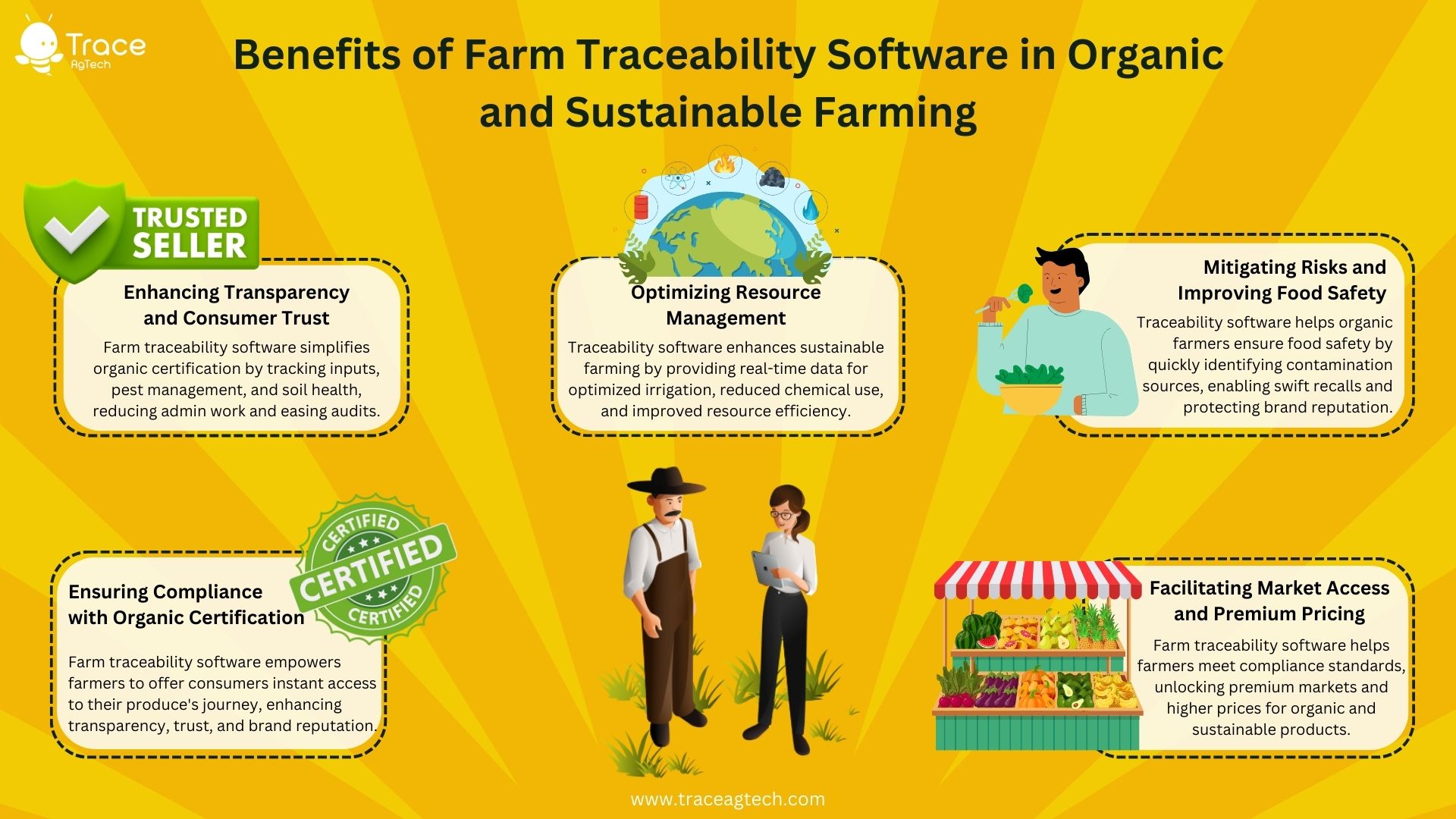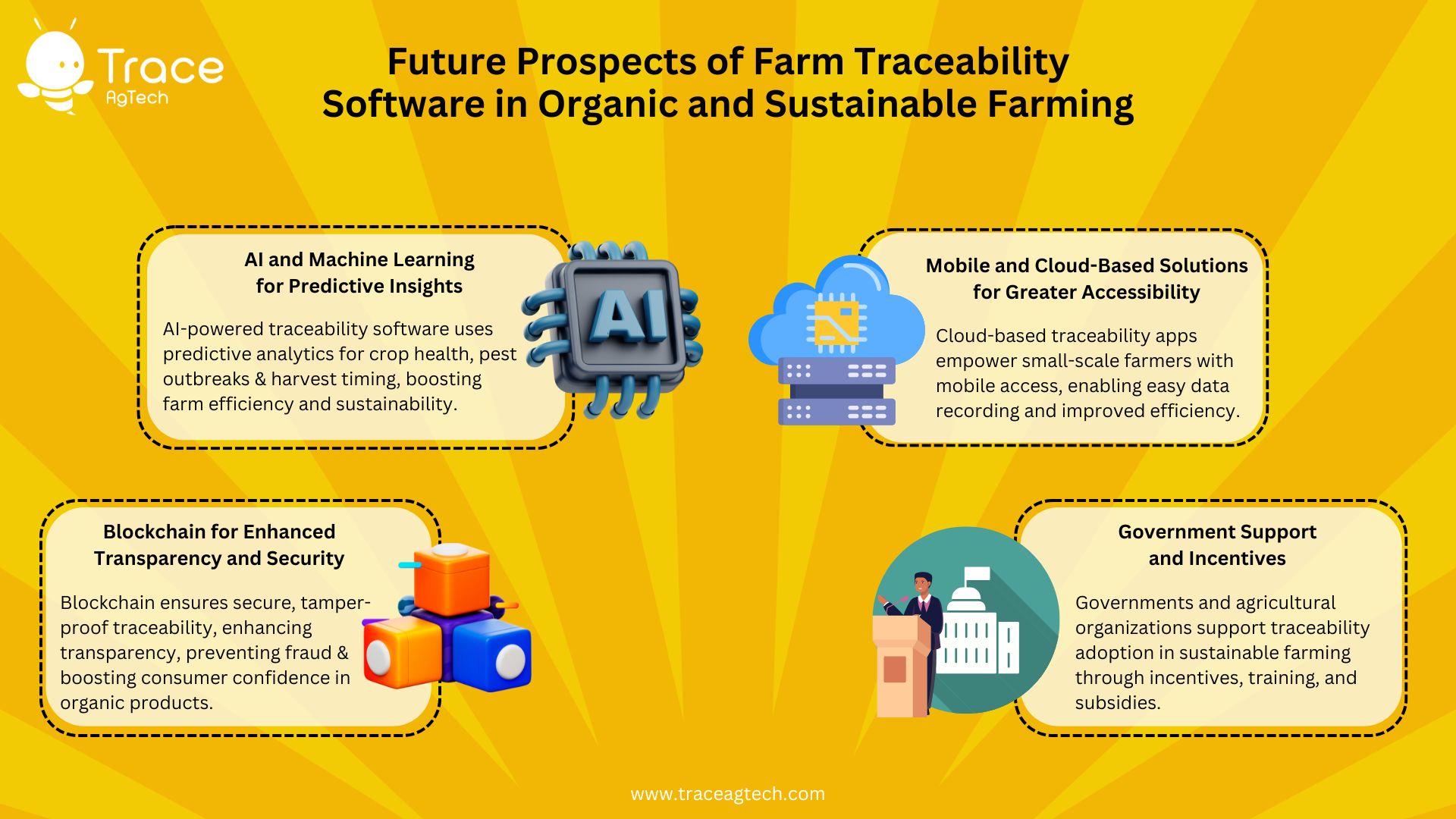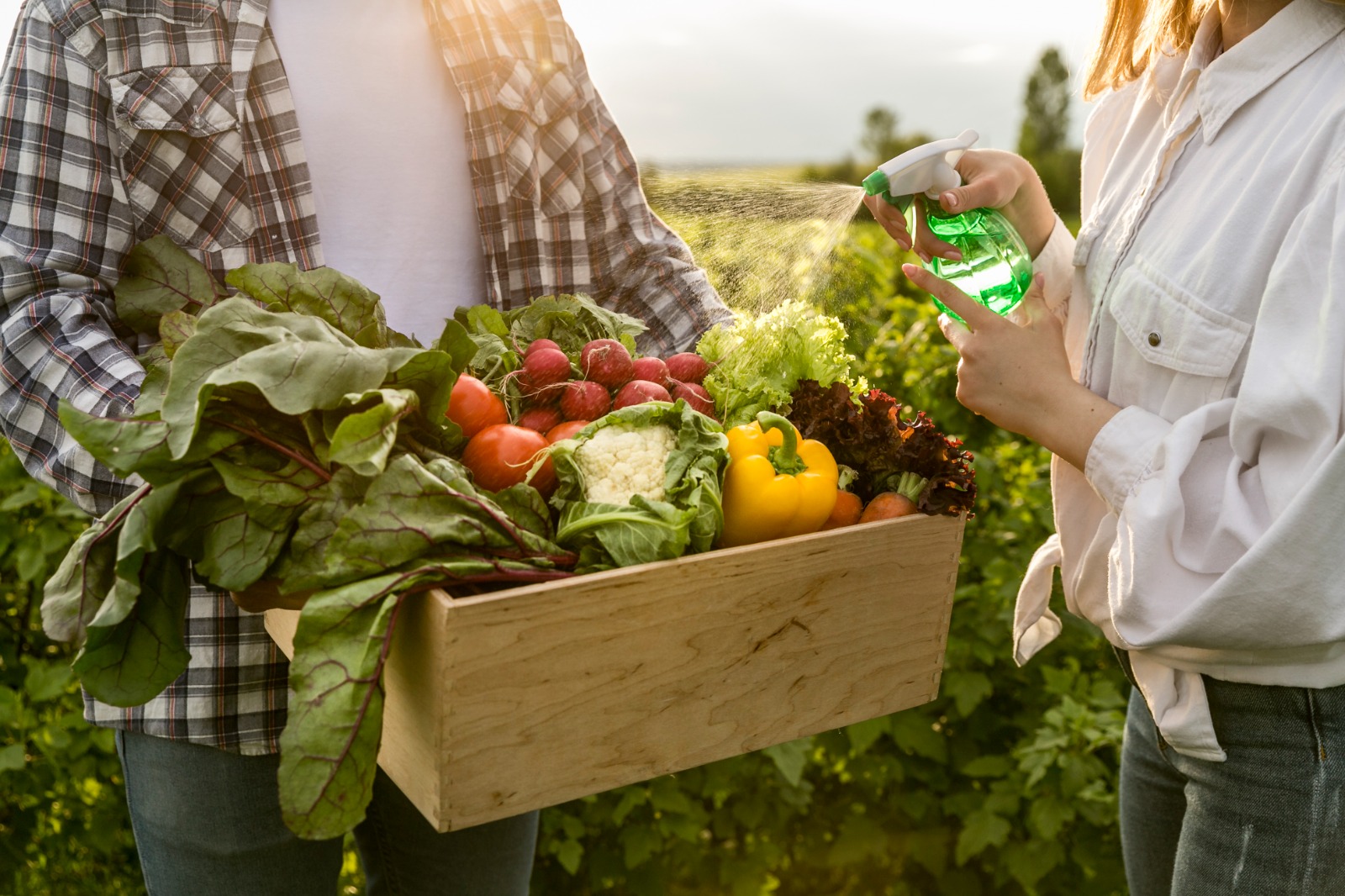Enhance Organic & Sustainable Farming with Traceability Software
Introduction
In recent years, the agricultural industry has witnessed a surge in the adoption of technology to improve efficiency, transparency, and sustainability. One of the most significant advancements is farm traceability software, which has revolutionized how farmers track, manage, and optimize their operations. In organic and sustainable farming, where compliance, environmental impact, and consumer trust are paramount, farm traceability software plays a crucial role in ensuring integrity and efficiency. This blog explores the profound impact of farm traceability software on organic and sustainable farming, highlighting its benefits, challenges, and future prospects.
Understanding Farm Traceability Software
What is Farm Traceability Software?
Farm traceability software is a digital solution designed to track and document every stage of agricultural production, from seed selection to harvest and distribution. This software enables farmers to maintain detailed records of inputs, practices, and outputs, ensuring transparency and compliance with regulatory standards. By leveraging cloud computing, blockchain, and IoT-enabled devices, modern traceability systems offer real-time monitoring, data analytics, and predictive insights to enhance decision-making and sustainability.
How Does It Work?
Farm traceability software integrates various technologies, including barcoding, RFID tagging, GPS tracking, and blockchain, to create a seamless tracking system. Farmers input data at different stages of production, and the software compiles these records into an accessible and verifiable database.
Benefits of Farm Traceability Software in Organic and Sustainable Farming
1. Ensuring Compliance with Organic Certification
Organic farming requires strict adherence to certification standards set by regulatory bodies such as the USDA Organic, EU Organic, and others. Farm traceability software simplifies compliance by automatically recording and organizing data related to organic inputs, pest management strategies, and soil health. This reduces the administrative burden on farmers while ensuring seamless audits and inspections.
2. Enhancing Transparency and Consumer Trust
Today’s consumers are more conscious about the origin and quality of their food. With farm traceability software, organic and sustainable farmers can provide consumers with detailed information about the journey of their produce. QR codes on packaging can link to digital records, allowing consumers to verify farming practices, sustainability efforts, and certifications. This transparency builds trust and strengthens brand reputation.
3. Optimizing Resource Management
Sustainable farming focuses on the efficient use of natural resources such as water, soil, and energy. Traceability software integrates with sensors and IoT devices to provide real-time data on soil moisture, weather conditions, and crop health. This information allows farmers to optimize irrigation, reduce chemical usage, and minimize waste, leading to improved resource efficiency and environmental conservation.
4. Mitigating Risks and Improving Food Safety
Traceability software helps organic farmers track potential contamination sources, ensuring the safety of their produce. In the event of a foodborne illness outbreak or product recall, farmers can quickly trace affected batches and take immediate corrective action. This not only protects consumer health but also safeguards the reputation of organic and sustainable brands.
5. Facilitating Market Access and Premium Pricing
Many retailers and food processors require detailed traceability records to ensure compliance with organic and sustainability standards. By adopting farm traceability software, farmers can meet these requirements more easily, gaining access to premium markets that offer higher prices for certified organic and sustainable products.

Challenges in Implementing Farm Traceability Software
Despite its numerous benefits, the adoption of farm traceability software comes with certain challenges:
1. High Initial Investment Costs
Many small and medium-sized organic farms operate on limited budgets, making it challenging to invest in advanced traceability solutions. Although costs have decreased with technological advancements, the initial setup and training expenses can still be significant.
2. Technical Complexity and Learning Curve
Implementing new digital systems requires training and adaptation. Farmers, especially those with limited technical knowledge, may find it difficult to navigate complex software interfaces and data management tools.
3. Data Security and Privacy Concerns
With the increasing digitization of farming records, concerns about data security and privacy are growing. Farmers need assurance that their sensitive data, including land use, production details, and financial records, are securely stored and protected from cyber threats.
4. Integration with Existing Farming Practices
Organic and sustainable farms often use traditional or low-tech methods. Integrating new traceability software with these existing practices can be challenging, requiring significant adjustments to daily operations.
Future Prospects of Farm Traceability Software in Organic and Sustainable Farming
As technology advances, the future of farm traceability software looks promising. Several trends are shaping the evolution of traceability solutions in organic and sustainable farming:
1. AI and Machine Learning for Predictive Insights
Artificial intelligence (AI) and machine learning algorithms are being integrated into traceability software to provide predictive analytics on crop health, pest outbreaks, and optimal harvest times. This can further enhance efficiency and sustainability in farming practices.
2. Blockchain for Enhanced Transparency and Security
Blockchain technology is being increasingly adopted to ensure immutable and tamper-proof traceability records. This decentralized approach enhances transparency, prevents fraud, and strengthens consumer confidence in organic products.
3. Mobile and Cloud-Based Solutions for Greater Accessibility
Cloud-based traceability platforms accessible via mobile apps are making it easier for small-scale and remote farmers to adopt traceability solutions. Mobile-friendly interfaces enable farmers to record and access data on the go, improving efficiency and ease of use.
4. Government Support and Incentives
Governments and agricultural organizations are recognizing the importance of traceability in sustainable farming and are providing financial incentives, training programs, and subsidies to encourage the adoption of traceability technologies.

Conclusion
Farm traceability software is transforming the landscape of organic and sustainable farming by enhancing transparency, ensuring compliance, optimizing resource use, and improving food safety. While challenges remain, ongoing technological advancements and increasing consumer demand for transparency are driving the adoption of traceability solutions. As the agricultural sector continues to embrace digital innovation, farm traceability software will play an even more crucial role in shaping the future of sustainable and organic farming.


Any comments?